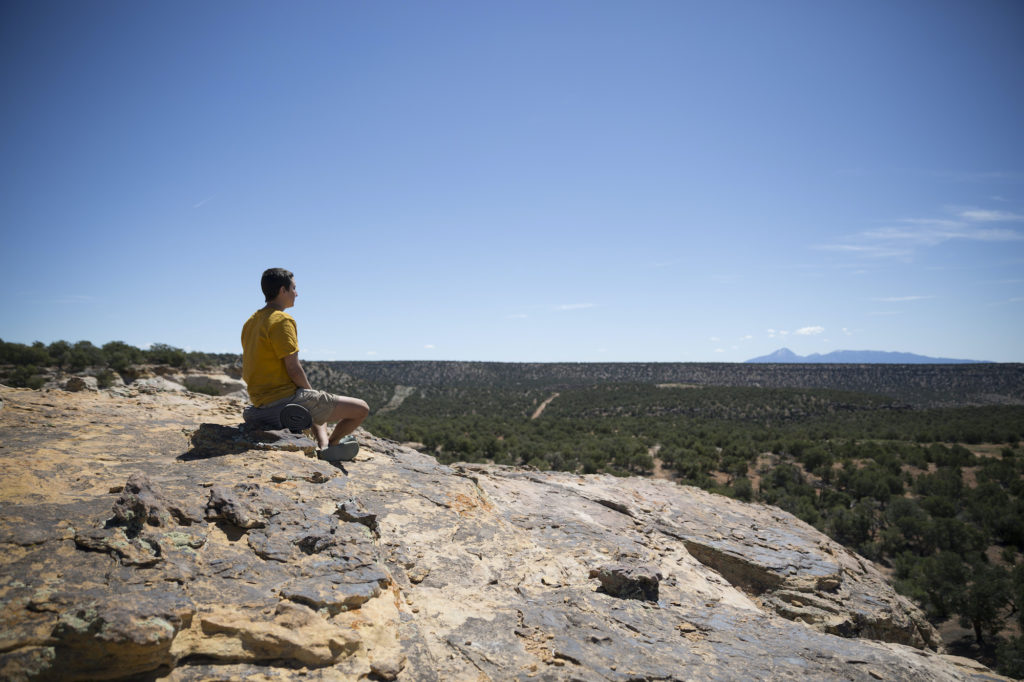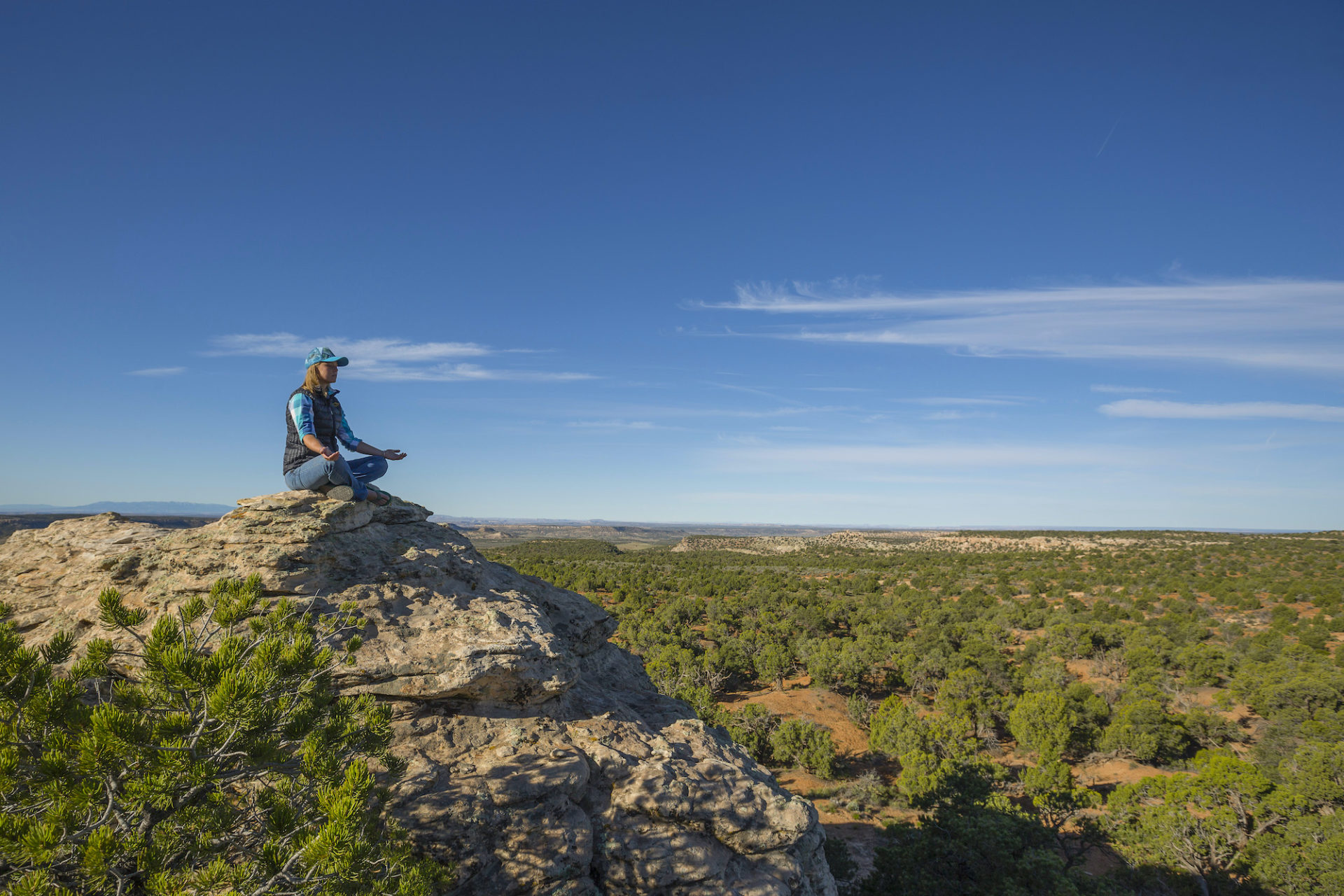How To Focus On Your Well-Being During the Pandemic | By Open Sky Wilderness Therapy
As COVID-19 has progressed and changed our day-to-day lives the last several months, many have questioned what it looks like to take care of one’s family and oneself in this new way of living. This is a valid and important question. After months of social distancing, remote and online schooling, closures of businesses and places of worship, and the general absence of normalcy, it’s easy to feel overwhelmed by our circumstances and the future. In the midst of navigating an unprecedented and historic pandemic, there are all the more reason to tend to our emotional well-being.
Open Sky Wilderness is a wilderness therapy program based in Durango, Colorado that helps teens and young adults do just that. Open Sky leads students through life changing therapeutic adventures in the San Juan Mountains of southwest Colorado and the canyon country of southeastern Utah. Below, Open Sky clinical therapists Mariah Loftin, Kirsten Bolt, and Brian Leidal share some of their recommendations to help individuals and families attend to their well-being during COVID-19.
How to keep yourself from feeling emotionally isolated while social distancing
In order to make sure you don’t emotionally isolate yourself, it’s important to recognize and acknowledge the challenges of this situation. We thrive off of connection and communication with others and we like to be heard and seen. These are all basic human needs. It’s normal to feel lonely or afraid without these crucial interactions, and by first acknowledging our own feelings, we can be much more effective in attending to our own needs.
The next step, albeit a challenging one, is to accept our situation. In other words, can we accept that we feel alone or overwhelmed without judgement? This enables us to connect with others and express how we feel, or ask for support. This could be a family member or roommate at home, or even a virtual or socially-distanced coffee with a close friend. Through sharing the vulnerable aspects of ourselves with others, we develop compassion for ourselves.

How to combat feeling overwhelmed and anxious
We all know the importance of exercising our bodies to maintain strength, balance and endurance. Similarly, we can exercise our brains through mindfulness and meditation to become more grounded, present and relaxed. When the world seems to be spinning around us, it’s crucial to take a step back, slow down, and take the time to notice patterns in ourselves and in others. Focused breathing exercises can ground us when we feel anxious. Here are some recommendations for quick, easy and effective breathing exercise to incorporate into your daily routine:
3-Fold Breath
- Sit or stand, upright. Close your eyes. Follow these steps, breathing in through your nose and out through your mouth.
- Inhale into your lower belly; feel it inflate. Repeat three times.
- Inhale into your mid-chest; feel your ribs expand. Repeat three times.
- Inhale into your upper chest; feel it rise and fall while relaxing the shoulders. Repeat three times.
- Connect all three parts. Inhale into the lower belly, mid-chest and upper chest. Hold your breath until almost uncomfortable. Slowly and steadily, exhale completely. Repeat three times.
3-3-5 Breath
- Inhale for three seconds.
- Hold for three seconds.
- Exhale for five seconds.
- Repeat once or twice.
How to support yourself and the health of your family when challenges arise
Conflict is bound to arise when you spend so much time together under one roof. Below are some practices to walk through when these situations occur. And remember, you can practice these skills when things are going well, in order to prepare for the moments of conflict or rising tension.
“I Feel” Statements:
- I feel … (feeling words only –- one or two maximum)
- When … (something you saw, heard, or experienced)
- I imagine I feel this way because … (your guess as to what explains what you saw, heard, or experienced)
- In the future, I hope/request … (be specific –- speak to something you and/or the other person could do)
Reflective Listening
Repeat what you heard the other person say, asking if you understood correctly. Don’t stop reflecting until it is clear the person feels like you understand them.
Validation:
- Actively listen and pay attention to the person.
- State his or her feelings descriptively without passing judgment.
- Respond in a way that takes the person seriously.
- Show tolerance, understanding how the behavior or emotion makes sense with the given circumstance or history. Note: it is possible to validate without approving of the behavior or emotion.
- Be mindful of yourself, the other person and your relationship.
And remember, many therapists are practicing teletherapy during this time. If you have struggles with your loved ones at home, find a therapist to help you and your family process through the struggles, develop healthy coping skills, and build relationship and communication skills.
Photos Courtesy of Open Sky Wilderness Therapy.
Since 2006, Open Sky Wilderness Therapy has provided the premier family-centered wilderness therapy experience. The Open Sky approach transcends traditional wilderness therapy by emphasizing treatment for the whole family, not just the adolescent or young adult, and the application of evidence-based clinical modalities with innovative, well-researched holistic healing practices such as yoga, meditation and mindfulness.
Boasting a blend of wool and tencel shearling lining, this durable shoe will comfort you from the [...]

Subscribe to Our Tribe
Stay up to date with Y+L News, Events and special announcements.










